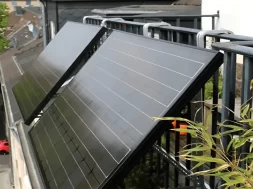
IndiGrid Energizes Delhi with India’s First Utility-Scale BESS for Power Distribution – EQ
In Short : IndiGrid has commissioned India’s first regulated utility-scale standalone Battery Energy Storage System (BESS) for a DISCOM in Delhi. The 20 MW/40 MWh Kilokari project, developed with Amperehour Solar and GEAPP, boosts grid stability and lowers peak demand costs. Approved at a competitive tariff, it marks a major step in India’s energy storage and renewable integration goals.
In Detail : IndiGrid has successfully commissioned India’s first regulated, utility-scale standalone Battery Energy Storage System (BESS) for a power distribution company in Delhi. The milestone project, located at Kilokari, has a capacity of 20 MW/40 MWh and was awarded by BSES Rajdhani Power Ltd (BRPL) in October 2023.
The BESS installation is aimed at improving grid reliability by managing peak electricity demand and enabling the integration of renewable energy sources at the distribution level. It serves as a key infrastructure development to support the growing energy needs of urban areas while maintaining supply stability.
Developed in collaboration with Amperehour Solar Technology and backed by the Global Energy Alliance for People and Planet (GEAPP), the project was completed on time and within budget. It is expected to reduce the cost of power procurement and delay the need for capacity expansion at the Kilokari 33/11 kV substation.
The Delhi Electricity Regulatory Commission approved a levelized annual tariff of ₹5.7 million per MW per year for this project, which is approximately 55% less than the previously established benchmark. This makes the project not only technologically advanced but also economically viable.
IndiGrid’s broader energy portfolio includes 41 power projects featuring 49 transmission lines, 15 substations, 855 MW of solar generation, and 450 MW/900 MWh of BESS capacity. The company continues to expand its footprint across India’s renewable energy and power infrastructure sectors.
As of March 2024, India’s total battery energy storage capacity reached 219.1 MWh. With government support and initiatives like GEAPP aiming for 1 GW of BESS by 2026, and a national target of 47 GW by 2032, projects like this signify a vital step in building a resilient and clean energy future.















